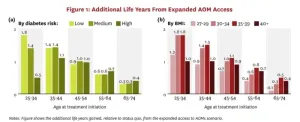Long-term fasting in 24-hour cycles increases the sex drive of male mice by lowering the concentration of the neurotransmitter serotonin in the brain. This effect is linked to a diet-induced deficiency of the precursor substance tryptophan – an amino acid that must be obtained through food. Researchers from DZNE report on this in the journal Cell Metabolism, together with a Chinese team from Qingdao University and the University of Health and Rehabilitation Sciences. They suggest that similar mechanisms may exist in humans and view fasting as a potential approach for treating unwanted loss of sexual desire.
Fasting is a recurring subject of research because reduced food intake and thus calorie restriction has a variety of effects on the organism beyond the commonly observed weight loss. Dr. Dan Ehninger, research group leader at DZNE and lead author of the current study, and his team have also been working on this topic for quite some time. “We are interested in the effects of fasting on aging. Using mice as a model, we investigate the underlying biological mechanisms. Our aim is to gain insights that may also be relevant to humans,” says the Bonn-based scientist.
More offspring than expected
The research results now published are based on a fortuitous discovery, as Ehninger and his colleagues had originally set out to investigate something else. Their aim was to examine how fasting affects the offspring of male mice. However, one particular finding steered their research in a new direction: aged male mice – senior individuals by human standards – that had fasted for extended periods produced an unusually large number of offspring. Contrary to initial hypotheses, this phenomenon was not due to fasting effects on reproductive organs or the endocrine state of the animals. Age-related changes in the testes, reduced sperm quality and lower testosterone levels, for example, argued against high fertility. “It was a bit of detective work to uncover the real cause,” says Ehninger, whose research group collaborated on the current study with experts from Qingdao University and the University of Health and Rehabilitation Sciences led by Prof. Yu Zhou. “Eventually, we realized: it is a matter of behavior. The fasting males had significantly more sexual contacts than mice that could eat freely. In other words, these animals had an unusually high frequency of mating and, as a result, an unusually high number of offspring for their age. Their mating behavior more than compensated for the age-related physiological limitations.”
Fasting in a 24-hour rhythm
Starting at two months of age, these male mice were subjected to a specific form of intermittent fasting. Their access to food followed a recurring 24-hour pattern: the animals were allowed to feed ad libitum for 24 hours, followed by 24 hours with access to water only. During the 22-month fasting regimen, the males were housed together without any contact with females. They were later introduced to three-month-old females that had been raised without dietary restrictions.
Effect takes time
Increased mating behavior was also observed in younger mice. These males had also started intermittent fasting at the age of two months, but had followed this diet for only six months before being introduced to females. They, too, were more sexually active than age-matched peers that had been fed ad libitum. However, the effect was absent in other experimental groups – both young and old – that fasted for only a few weeks. “For intermittent fasting to increase sex drive, it takes some time,” says Zhou. “Based on our experiments, the minimum duration appears to be somewhere between six weeks and six months.”
A question of serotonin
In the course of investigating the causes, the attention eventually turned to neurotransmitters that influence sexual behavior. Some have a stimulating effect, while others act as inhibitors. Among the sexually active male mice, one factor stood out: serotonin – a chemical messenger generally associated with inhibitory effects – was present at unusually low levels. “These mice were, so to speak, sexually uninhibited, the usual regulatory restraint was diminished,” says Ehninger. Serotonin is primarily produced in the gastrointestinal tract, but also in the brain, where it acts as a neurotransmitter mediating communication between neurons. However, its synthesis depends on the amino acid tryptophan, which must be obtained through the diet or released through the breakdown of the body’s own protein stores, such as those found in muscle tissue. Tryptophan is considered an essential amino acid, meaning that neither mice nor humans can synthesize it on their own. As a result, dietary intake plays a key role in regulating tryptophan levels in the body. It is, in fact, found in many common foods. “The lack of serotonin was clearly a result of fasting,” explains the DZNE researcher.
Is the fasting regimen relevant?
“All in all, the fasting mice consumed almost fifteen percent fewer calories than the animals in the control group. This also roughly applies to their intake of tryptophan,” says Zhou. “However, it is currently unclear whether the reduction in serotonin levels is linked to our specific feeding regimen or would also occur with other types of fasting. Future studies will need to clarify this.” As the scientist notes, it is also possible that the effect could occur under a general caloric restriction, where food is continuously available but in reduced amounts.
A potential approach for therapy
“Chemical messengers also play an important role in regulating sexual behavior in humans. This applies in particular to serotonin,” says Ehninger. As he points out, this is evident, for example, in the use of SSRIs, a class of antidepressant drugs that increase serotonin levels. A potential side effect of this therapy is reduced libido. Conversely, lower serotonin levels are known to promote sexual desire. “In view of this, I consider it very plausible that sexual desire in humans can be influenced by fasting – possibly not only in men, but also in women, since serotonin affects their libido as well.” According to Ehninger, there are actually only a few scientific studies on the effects of fasting on human libido. “In my opinion, it would make sense to investigate this in more detail. I see potential for therapeutic application. A lack of sexual desire is not necessarily perceived as problematic – but some people suffer from it. This condition is known as ‘hypoactive sexual desire disorder’ and particularly affects older adults. Fasting could potentially serve as a useful addition to existing treatment options.”
--
About Deutsches Zentrum für Neurodegenerative Erkrankungen, DZNE (German Center for Neurodegenerative Diseases): DZNE is one of the world’s leading research centers for neurodegenerative diseases such as Alzheimer’s, Parkinson’s and ALS, which are associated with dementia, movement disorders and other serious health impairments. These diseases place an enormous burden on patients and their families, but also on society and the economy of healthcare. DZNE contributes significantly to the development and translation into practice of novel strategies for prevention, diagnosis, care and treatment. DZNE comprises ten sites across Germany and collaborates with universities, university hospitals, research centers and other institutions in Germany and throughout the world. DZNE is state-funded and a member of the Helmholtz Association and of the German Centers for Health Research. www.dzne.de/en
END



